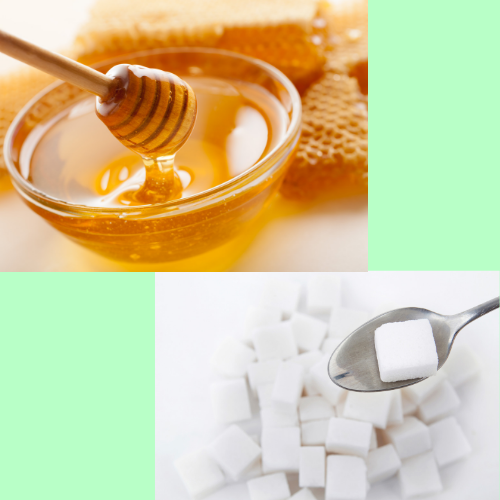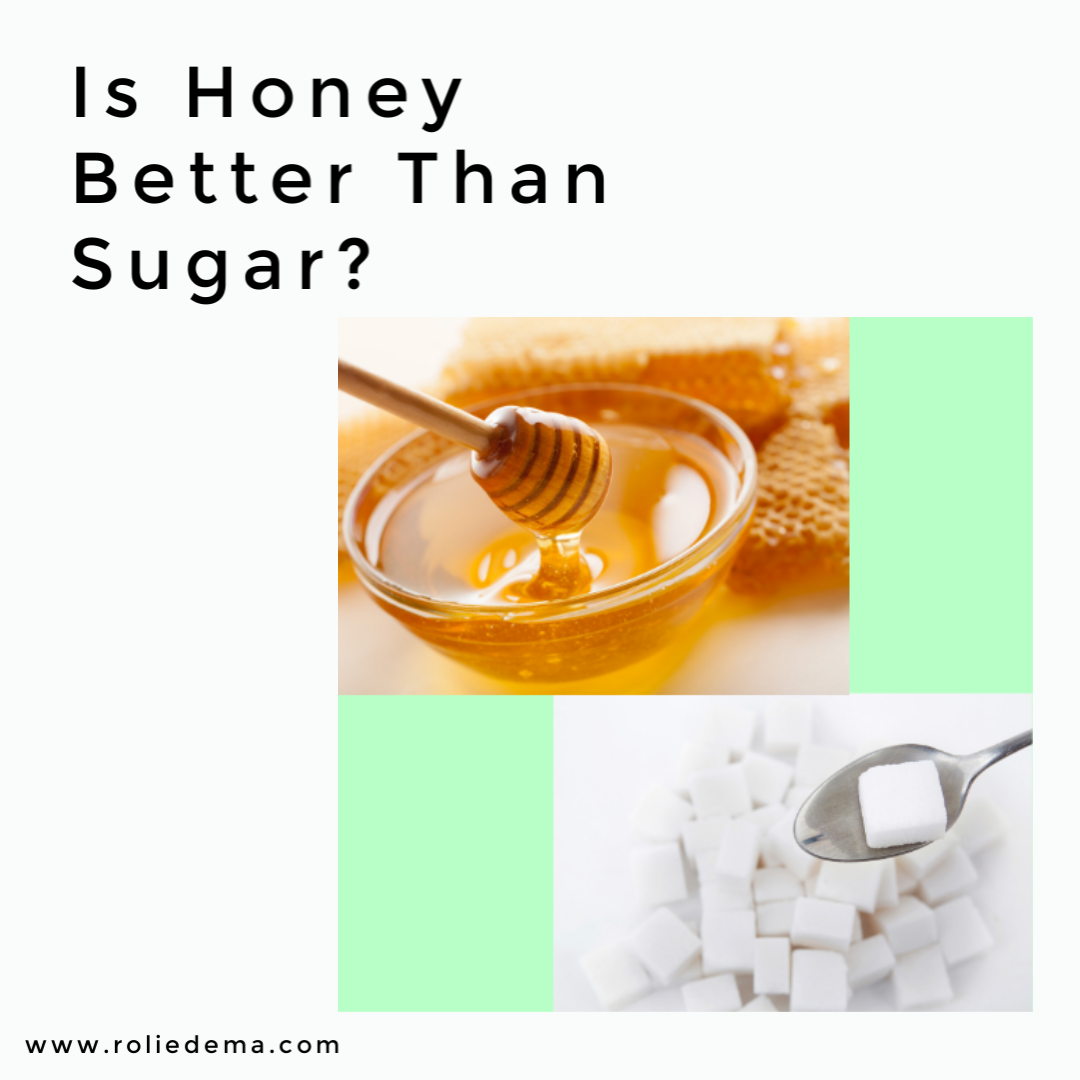Is Honey Better Than Sugar?
Is honey better than sugar? Let's look at the pros and cons of choosing honey or sugar when it comes to sweetening your food and drink.

Honey and sugar both are used to sweeten food, but they obviously have different tastes and textures.
Honey and sugar are both carbohydrates that are made up of glucose and fructose.
The proportions of glucose and fructose in honey and sugar are different:
- Sugar is 50% fructose and 50% glucose
- Honey is 40% fructose and 30% glucose
What about the remaining 30% of honey?
Honey also contains trace amounts of
- enzymes
- amino acids
- B vitamins
- vitamin C
- minerals
- antioxidants
These additional components may be responsible for some of the health benefits of honey.
Many of the antioxidants found in honey are classified as flavonoids. Flavonoids have been reported to have antibacterial, anti-viral, anti-inflammatory and anti-allergenic properties.
Honey is produced by bees from the nectar of flowers, and bees that feed on specific plants make honey with unique flavours. Here are a few of the many varities of honey:
- Acacia - very sweet with a pure, classic honey flavour
- Buckwheat - strong and spicy flavour which makes it great for marinades
- Eucalyptus - contains a hint of menthol flavour
- Sourwood - caramel-like and buttery
- Wildflower - light, fruity, yet richly flavoured
Honey has a lower GI (glycemic index) value than sugar, which means that it does not raise blood sugar levels as quickly.
Honey has slightly more calories per teaspoon than sugar, but it is sweeter, so you may need less of it.
The health benefits of honey depend on its processing as well as the quality of the flowers the bees collect the honey from. Raw honey retains more nutrients than processed honey, since raw honey does not undergo the processes of being heated, pasturised, clarified, or filtered in any way.
Unlike honey, sugar has no added vitamins or nutrients. Sugar is derived from sugar beet and sugar cane plants, and requires processing before it becomes the commonly-used refined, granulated table sugar.
White sugars are typically what you find in your sugar bowl. Brown sugars are made either by directly boiling a brown sugar syrup or mixing white sugar with various amounts of molasses. Liquid sugar is often used in drinks and is white granulated sugar that has been dissolved in water.
Sugar can be an attractive cupboard staple because of its low cost and long shelf life. For the modern western diet, sugar makes many foods more palatable and thus it proves to be a versatile ingredient.
Because sugar doesn't contain enyzmes, it may be harder to digest than honey. Sugar can also increase your risk of certain diseases, such as heart disease and type 2 diabetes. Weight gain and obesity are also associated with high sugar consumption.
If consumed in large quantities, sugar can provide a quick burst of fuel followed by a sharp drop in energy. This sharp drop is often characterized by headaches, difficulty concentrating, and tiredness.
However, sugar and honey have similar effects on blood glucose levels. An excess of each one can be problematic for people with diabetes and insulin resistance.
Is honey better than sugar? Bottom Line: Honey and sugar can both be used in small quantities to make food and beverages more platable. Overall, honey has a better reputation because of its medicinal benefits, but both honey and sugar can have negative effects on your health when used in excess. It should be noted that if honey is your chosen sweetener, the best kind of honey to use is a raw variety, which retains more nutritional benefits.
As far as taste goes, you can experiment with both in moderate quantities to figure out what taste you prefer. For instance, you might prefer honey in your tea, but choose sugar as a sweetener for baking.
Here are some tips for the mindful consumption of honey and sugar:
- Cut portions in half - Instead of a full spoon, try using half a spoon of honey or sugar
- Use natural fruit purees - Use fruits like mashed bananas or apples, especially in baking
- If baking, only use 1/3 of recipe amount - I like reducing the amount of sugar suggested in the recipe, and often it has little impact on the tastefulness
- Use extracts or sweet spices - Vanilla and cinammon are good choices to add sweetness to food and beverages without added calories
Thanks for reading! On that note, have you tried this raw manuka honey?
Thanks for reading! If you liked this content, share with a friend:
Recent Articles
-
11 Best Gifts for Psychology Majors That Will Delight and Amuse
Dec 07, 25 01:46 PM
Looking for the perfect psychology-themed present for a college student or therapist? Here is a roundup of the best gifts for psychology majors. -
15 Best Gifts for High Maintenance Women and Self-Care Queens
Nov 24, 25 06:49 PM
What do you buy a lady who is already accustomed to a lavish lifestyle? Here are ideal gifts for high maintenance women who never settle for less than the best. -
5 Signs You’re in a Creative Incubation Phase (Not a Rut)
Nov 11, 25 07:51 PM
Feeling uninspired? What if this pause is actually part of the process...Here are signs that you're in a creative incubation phase and good things are coming.





